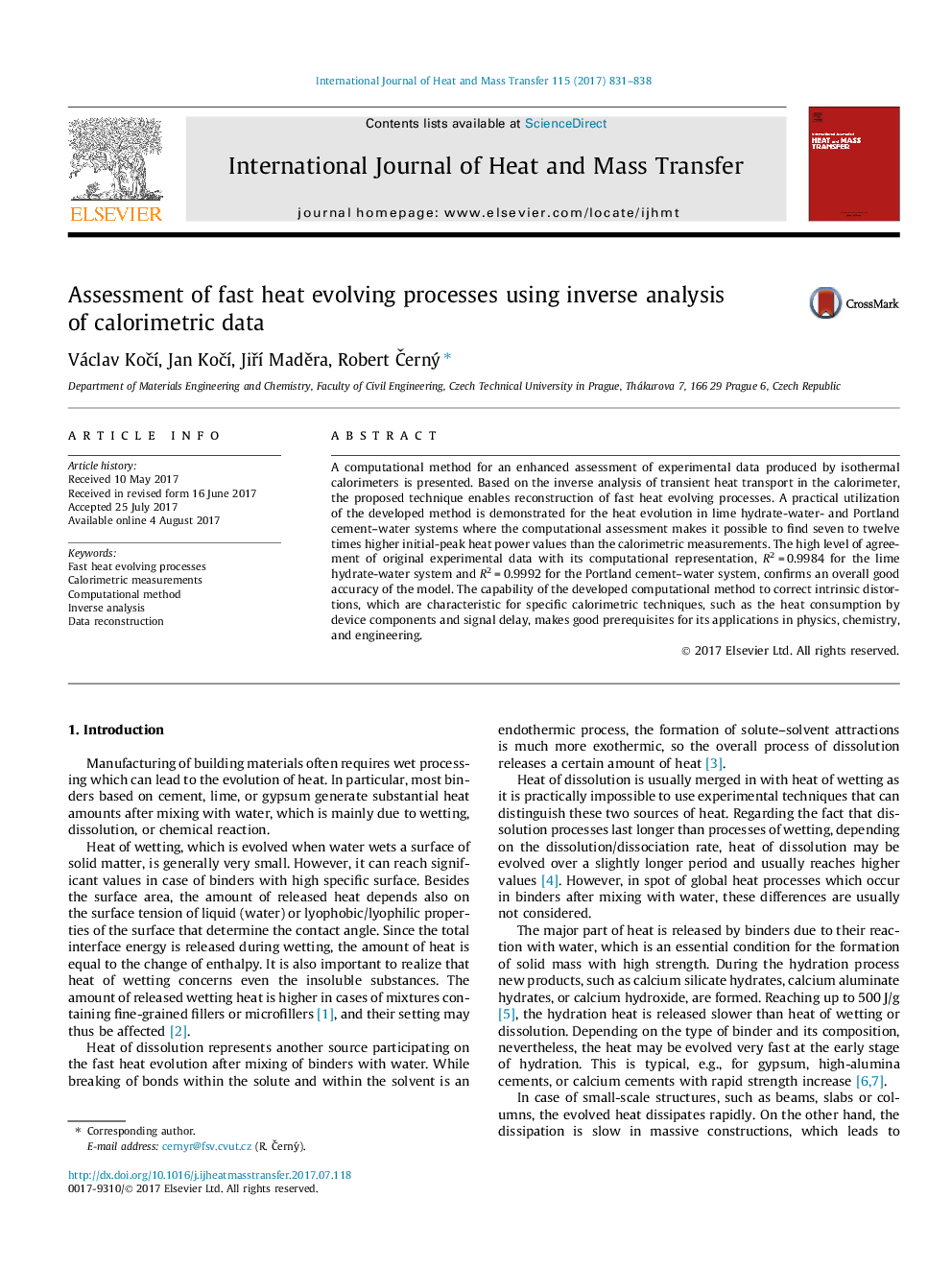| Article ID | Journal | Published Year | Pages | File Type |
|---|---|---|---|---|
| 4993513 | International Journal of Heat and Mass Transfer | 2017 | 8 Pages |
Abstract
A computational method for an enhanced assessment of experimental data produced by isothermal calorimeters is presented. Based on the inverse analysis of transient heat transport in the calorimeter, the proposed technique enables reconstruction of fast heat evolving processes. A practical utilization of the developed method is demonstrated for the heat evolution in lime hydrate-water- and Portland cement-water systems where the computational assessment makes it possible to find seven to twelve times higher initial-peak heat power values than the calorimetric measurements. The high level of agreement of original experimental data with its computational representation, R2Â =Â 0.9984 for the lime hydrate-water system and R2Â =Â 0.9992 for the Portland cement-water system, confirms an overall good accuracy of the model. The capability of the developed computational method to correct intrinsic distortions, which are characteristic for specific calorimetric techniques, such as the heat consumption by device components and signal delay, makes good prerequisites for its applications in physics, chemistry, and engineering.
Related Topics
Physical Sciences and Engineering
Chemical Engineering
Fluid Flow and Transfer Processes
Authors
Václav KoÄÃ, Jan KoÄÃ, JiÅà MadÄra, Robert Äerný,
